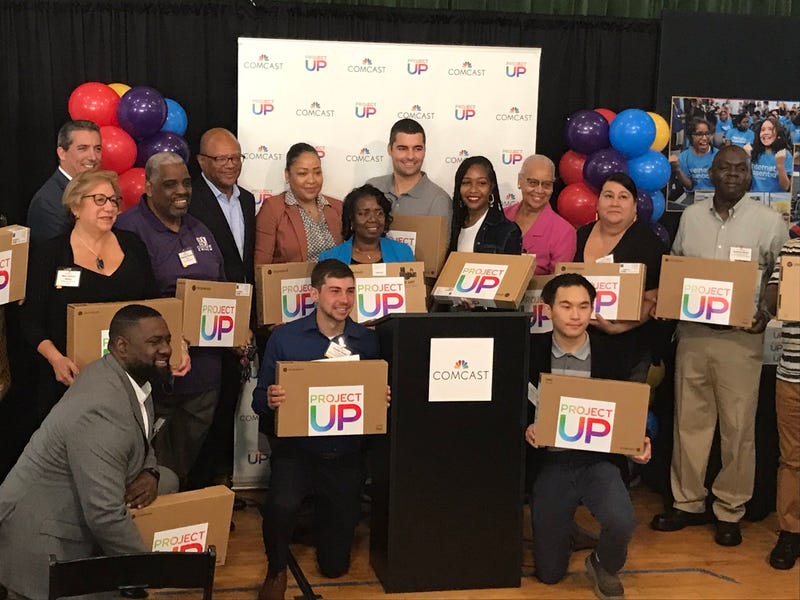
DETROIT (WWJ) – In efforts to help close the digital divide in Detroit, Comcast is stepping up to give low-income Detroiters greater online access.
Comcast on Tuesday announced the company has awarded $225,000 in grant money to the Detroit Housing Commission, Human IT and the St. Patrick Senior Center as they launch digital navigator programs.
Digital navigators are "trusted guides who assist community members in internet adoption and the use of computer devices," Comcast says. Digital navigation services include ongoing assistance with affordable internet access, devices acquisition, technical skills and application support where applicable.
Those programs will see people at each of the organizations receiving grant money trained to help low-income Detroiters access the internet, use devices and build digital skills, which are all becoming increasingly important aspects of everyday life.
Detroit Housing Commission CEO Sandra Henriquez says the necessity for online access has become greater over the last couple years.
“Sometimes, school now is at home because of the pandemic. Because sometimes now, work is at home. So not only do we build the home as our foundation for just everyday essentials, the internet access has become an essential part of our home and our lives,” Henriquez said during an event Tuesday announcing the donations.
The $225,000 in grant money is part of the more than $1 billion nationwide Project UP, an initiative for digital equity due to a growing digital divide brought on by economic disparities.
In addition to the grant money, Comcast also donated 100 new laptops and provided $30 internet monthly bill credits as part of their Affordability Connectivity Program.
Among those to receive a new laptop Tuesday was Willie Davis, who’s recovering from a recent stroke. He told WWJ’s Ryan Marshall he’s thankful for his new laptop, which will help with his recovery.
“I’m grateful for the fact it means a lot to own a computer and better my mindset,” Davis said. “I’ve had a little complications in life, but they’re getting better.”

